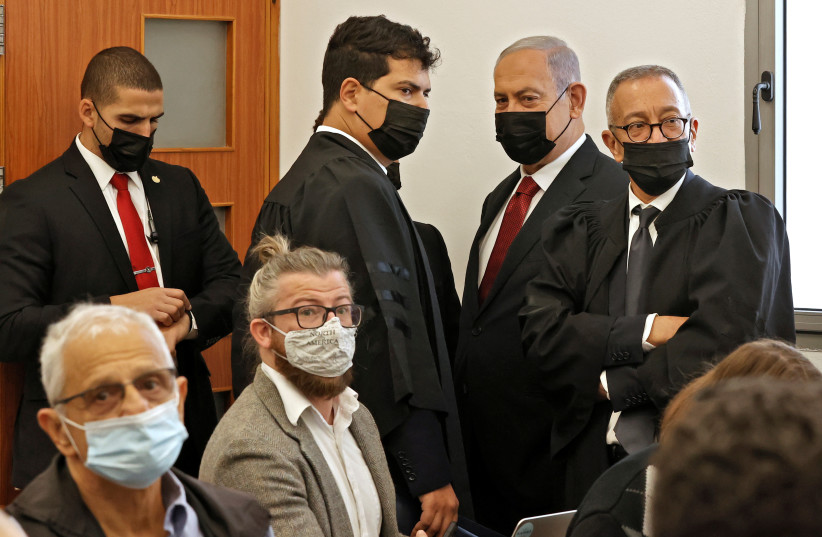Attorney-General Avichai Mandelblit is willing to enter plea bargain talks with opposition leader Benjamin Netanyahu only if it is understood in advance that the former prime minister would be convicted of corruption-related crimes and that the prosecution would seek a court finding of moral turpitude to exclude him from public office for seven years, The Jerusalem Post has learned.
Currently, there are only informal negotiations between emissaries to determine whether Netanyahu is serious about accepting such a deal.
If Netanyahu is only willing to accept an Arye Deri-style deal, where the prosecution does not seek a finding of moral turpitude and he could remain in politics merely by resigning his Knesset seat on a temporary basis, Mandelblit would be unwilling to enter formal talks about how to amend the indictment and other issues.
However, if he accepts that his political fate will be determined by the court and with an aggressive push by the prosecution to send him into retirement, the attorney-general is willing to enter negotiations.
Mandelblit feels he is in a much stronger position than Netanyahu, because the former prime minister initiated the latest round of informal talks and the attorney-general is stepping down on February 1.

In addition, Mandelblit’s immediate replacement will be State Attorney Amit Aisman, who Netanyahu tried to block from taking office for several months.
Further, almost all of the state prosecution personnel would prefer to continue with the trial and send Netanyahu to jail. They even wanted to indict him on more serious bribery charges in Cases 1000 and 2000 (the “illegal gifts” and “Yediot Aharonot” affairs) than the more minor charges Mandelblit decided on in the end — bribery only in Case 4000 (the “Bezeq-media affair”).
Based on the above, Mandelblit is even unwilling to bring a proposal before the state prosecution team unless Netanyahu agrees to the basic framework of corruption-related crimes (even if reduced) and the court decides his political fate with an aggressive prosecution push for moral turpitude.
Mandelblit feels that bringing anything less – including many of the scenarios being floated in media reports by Netanyahu messengers – would be scotched by the rest of the prosecution team, and he is only willing to try to get them to bend so far.
Mandelblit is ready to push the prosecution to agree to no jail time if the above requirements are met and if Netanyahu agrees to a finding that formally requires jail time, but is unofficially converted to serious community service hours (meaning Netanyahu would not actually enter jail.)
The attorney-general is waiting for Netanyahu’s response to see if his latest outreach is for real or merely a momentary whim in which he hoped that Mandelblit was weakened by cross-examination of key witness Nir Hefetz and could be bulldozed in his last two weeks into an Deri-style deal.
Deri cut a plea deal in which he must resign from the Knesset, but can run for the next one, remain head of Shas and possibly even seek to become a future minister, though that issue is unclear.
